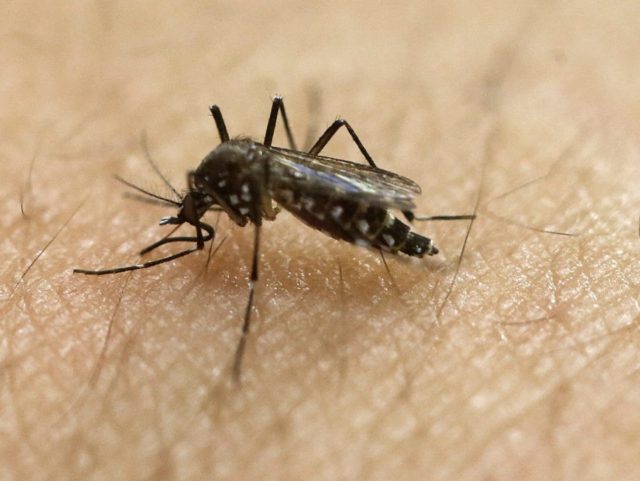As Florida monitors the growing number of locally acquired Zika cases throughout the state, meteorological experts tell USA Today that the upcoming hurricane season could complicate containment of the mosquitos that spread the virus.
A tropical wave forming near Florida is threatening to evolve into a tropical storm at the beginning of hurricane season, and the level of damage it may cause appears heavily dependent on whether it touches land, experts tell the Miami Herald. “Forecasters gave the system a mere 20 percent of becoming a tropical storm in the next two days. Odds of it becoming a storm when it nears Florida are 60 percent, forecasters said,” the newspaper notes.
Tropical storms and, especially, hurricanes can cause flooding, cut off electricity, and tear storm doors and screens off of homes, all leading to riskier activities regarding human-mosquito interactions. USA Today reports that experts fear a situation where electricity in Zika-affected neighborhoods is cut off and people leave their doors and windows open, allowing mosquitos in.
With more damage comes more risk. “If windows and roofs are blown out and off of thousands of homes, then there is increased exposure to mosquito biting,” Jerome Goddard, an extension professor of medical entomology at Mississippi State University, told USA Today. He added some good news, though: aedes aegypti, the mosquito responsible for spreading Zika, is particular about where it makes its nests, and heavy flooding may create pools too big and not stagnant enough for a good nest. Other experts warn the newspaper that once the flood waters start receding, leaving small pools of old rain water, the mosquito nests may increase in number.
USA Today reports 43 current cases of locally contracted Zika in Florida, most in the northern Miami neighborhood of Wynwood. Other cases have surfaced in Miami Beach and in an undisclosed location in northern Pinellas County, in the Tampa Bay area. On Friday, authorities in Palm Beach County confirmed a case of Zika in their region not related to travel to a Zika-affected country.
The University of Florida is expecting hundreds of Zika cases to be diagnosed in Florida within the next month, all locally transmitted. Zika spreads through aedes aegypti and through sexual transmission, making it possible to acquire from a partner without having contact with a mosquito.
The Zika virus more often than not causes no symptoms in those carrying it, and mild symptoms in the few that exhibit overt signs of carrying it. Zika poses its greatest danger to unborn children, whose neural development the virus stunts. The most common birth defect associated with Zika is microcephaly, a condition in which the skull of a child is too small for its brain, crushing pivotal areas of the brain.
Due to the threat Zika poses to pregnant women, Planned Parenthood has begun a campaign in South Florida to hand out contraceptives and bug spray. In Latin America, Planned Parenthood’s international branch advocated abortions for women who feared they could have contracted Zika while pregnant.
Congress has yet to allocate funding to Zika research because Democrats blocked an appropriations bill that funded Zika research and aid to affected areas without funding Planned Parenthood. Republican Florida Governor Rick Scott is planning a trip to Washington next month to lobby for Zika-prevention funding.

COMMENTS
Please let us know if you're having issues with commenting.